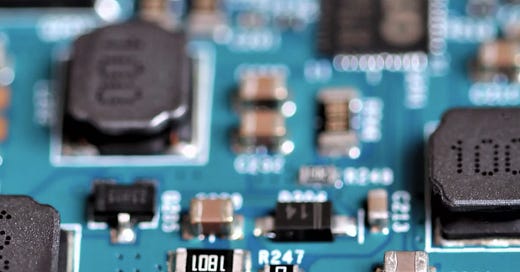Welcome to Cautious Optimism. Today is July 10th, 2024. Today we’re talking new startup rounds, Microsoft’s latest move to dodge regulatory scrutiny, and why the value of AI models and the companies building them could trend to zero. Let’s go! — Alex
The Rundown
📈 Trending up: Automated warehouses … age-gating online content … Game Pass prices, as all streaming services squeeze … Russian election meddling … European space access … Samsung hardware …
📉 Trending down: Samsung’s relationship with its workforce … European tech independence (FT) … Japan’s GDP … UiPath’s workforce …
📊 Startup rounds of note: Skild AI’s $300 million Series A is a bet that AI is going to make robots more generally useful … Captions’ $60 million round is yet another AI video investment, making me wonder when that stuff is going to become more than just a tweetable demo …
🤔 What else? Microsoft and Apple are either giving up their observer seats at OpenAI (Redmond), or declining to take up their chair at all (Cupertino). This is big news for two reasons:
Microsoft is working to distance itself from OpenAI, at least in the eyes of regulators. It does not want its 49% stake in OpenAI’s commercial arm to become viewed as having control of the AI concern. Because no one would allow Microsoft to buy it.
Apple not taking up its board observer slot as the FT reports (and TC confirms), I presume, was an agreement that Microsoft called for. The tech giant couldn’t let a different tech giant sit on a board that it had to vacate, right?
Finally, the news is a big win for OpenAI, which gets more room to do whatever it wants after securing the capital and deals it wanted from the two most valuable companies in the world.
AI revenue, AI models, and the dangers of rapid depreciation
TSMC reported earnings today. The Taiwanese semiconductor company beat expectations, disclosing that its revenues rose 32.9% in June compared to the same month one year ago. Reuters, whom I trust to do the currency conversions more intelligently than myself, has the numbers for TSMC’s Q2 2024:
Revenue in the April-June period of this year came in at T$673.51 billion ($20.67 billion), according to Reuters calculations, compared with an LSEG SmartEstimate, drawn from 21 analysts, of T$654.27 billion.
The company’s second-quarter growth works out to 32% per Reuters, or just under what it reported in June. Shares of TSMC are up a few points today in the wake of the news.
If you claim to be surprised that a chip company is doing well in current AI era, I don’t believe you. However, while shares of TSMC are around 82% this year, and Nvidia’s stock is up 173%, revenue from the software side of AI is starting to look a little thin on the ground.
Warning signs that not all AI hype would translate into near-term business results have cropped up for some time. Back in February, the WSJ reported that some early customers of Microsoft’s AI tools for its Office suite were worried it wasn’t worth the cost. The Journal had even more on AI’s missing productivity gains in May.
More recently, a Goldman Sachs report discussing genAI costs and benefits made waves after Ed Zitron wrote about it in his Where’s Your Ed At publication. In it, the investment bank’s Jim Covello (Head of Global Equity Research) said the following (emphasis added):



